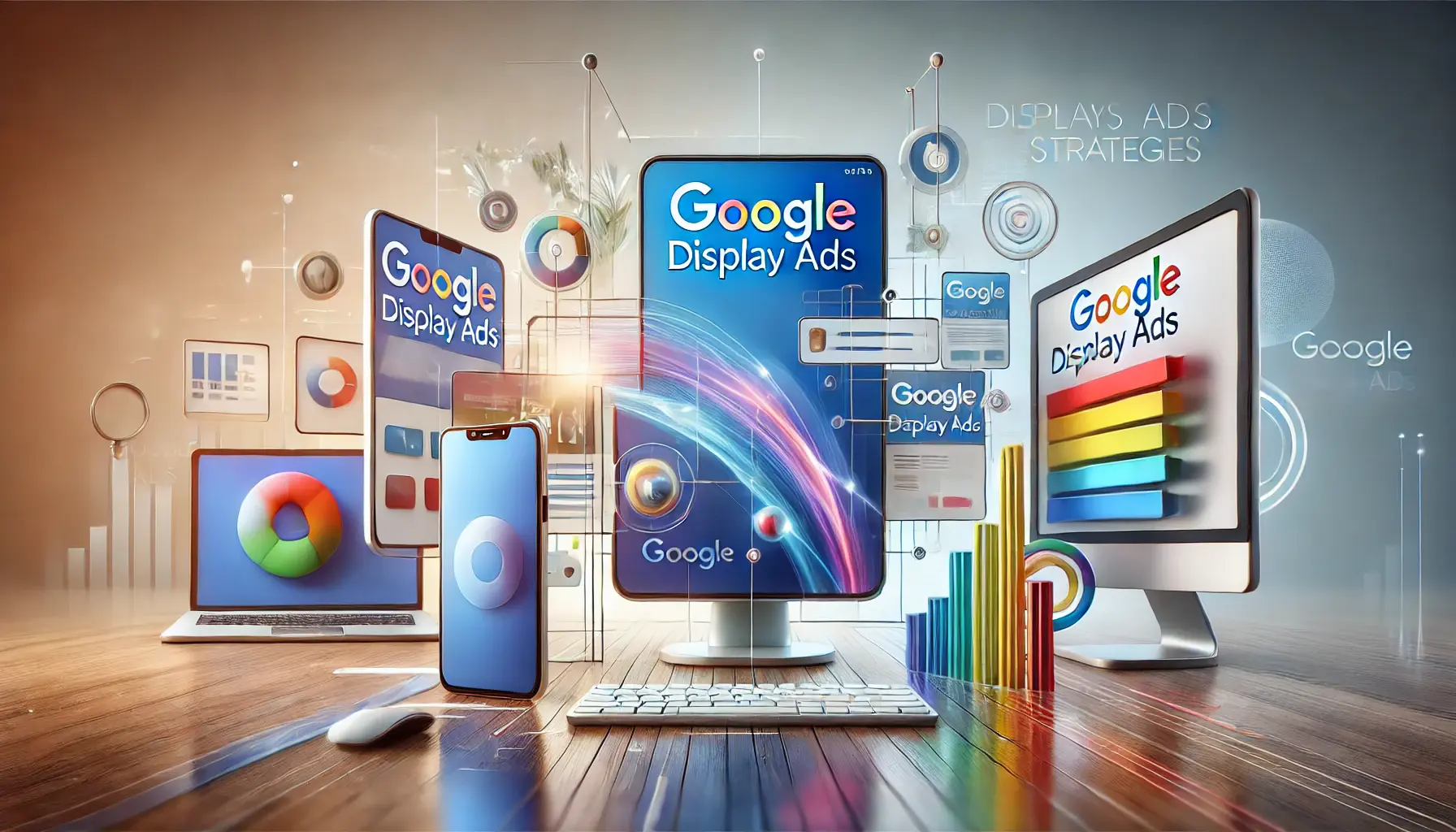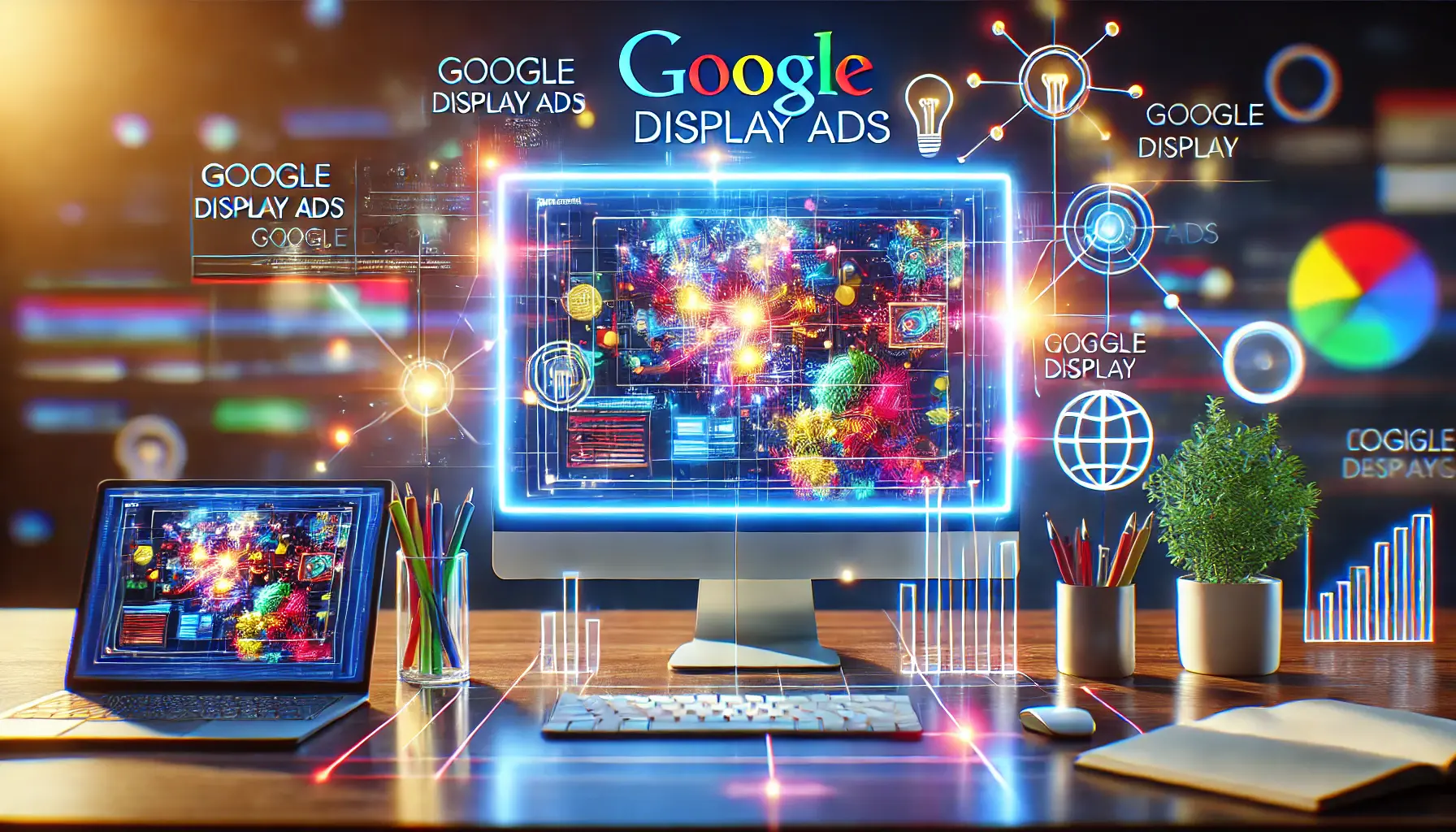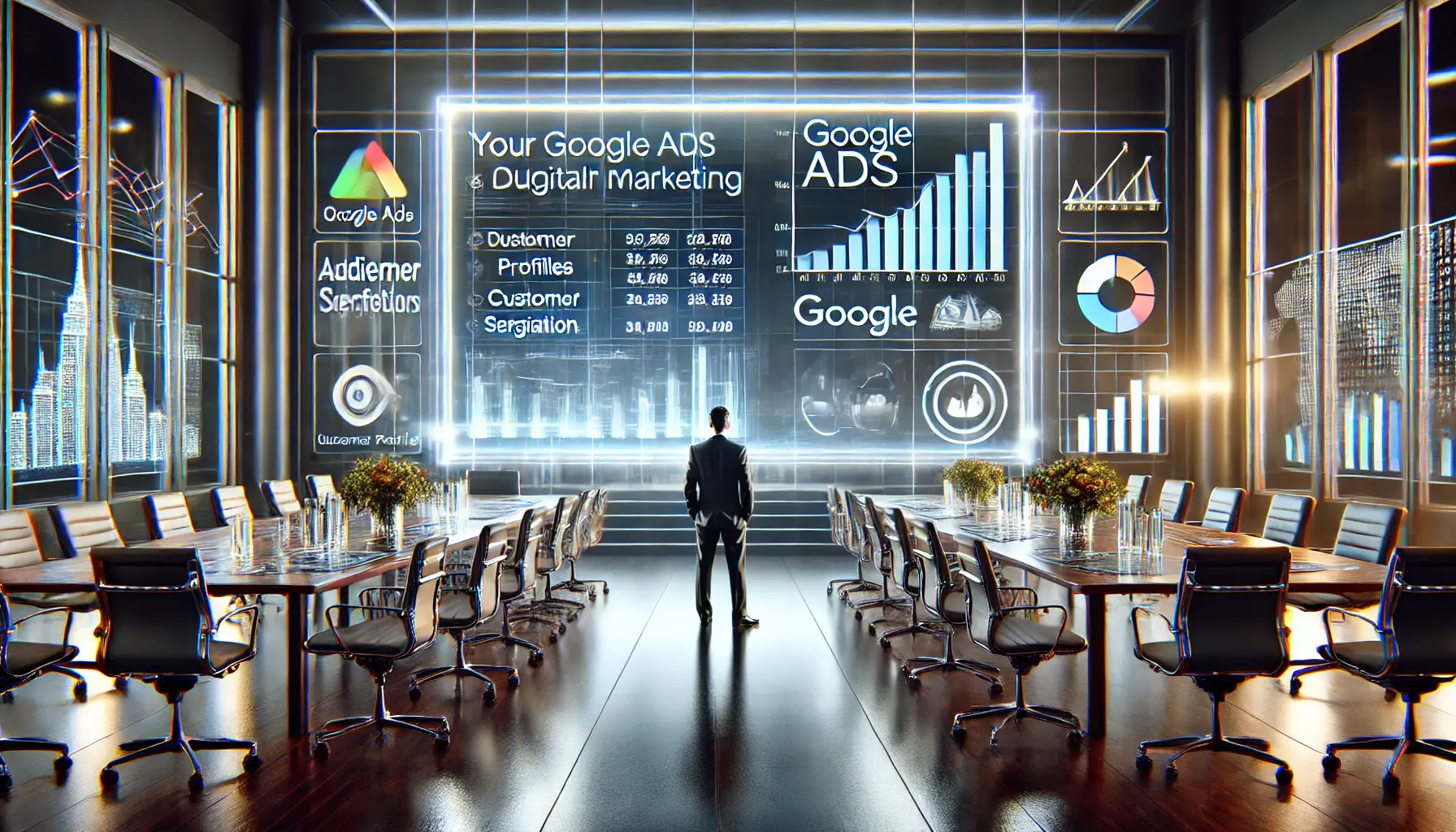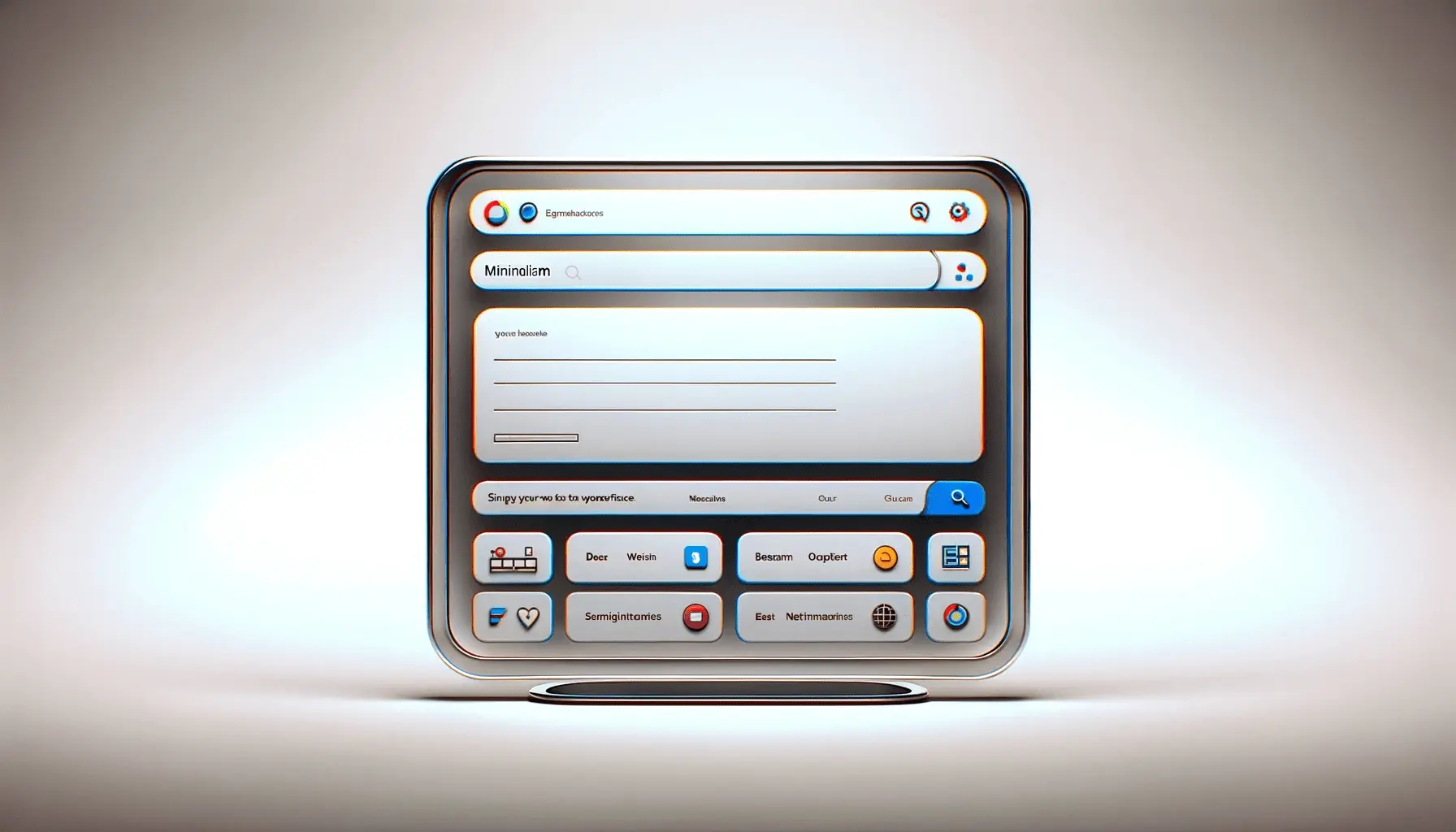In today’s digital landscape, delivering an exceptional user experience is paramount, especially when it comes to YouTube ads.
As viewers access content across a myriad of devices, ensuring that your video advertisements are optimized for diverse viewing formats is crucial.
This not only enhances viewer engagement but also amplifies the effectiveness of your advertising campaigns.
- Optimizing Video Content for Diverse Viewing Formats
- Integrating Interactive Elements to Boost Engagement
- Leveraging AI for Personalized Ad Experiences
- Enhancing Ad Relevance Through Advanced Targeting
- Enhancing Ad Formats for Better User Experience
- Maximizing User Experience in YouTube Ads: Key Takeaways
- Frequently Asked Questions on Enhancing User Experience in YouTube Ads
Optimizing Video Content for Diverse Viewing Formats
Have you ever considered how your audience consumes content on different devices?
It’s essential to tailor your video ads to provide a seamless user experience, whether viewed on a smartphone, tablet, or desktop.
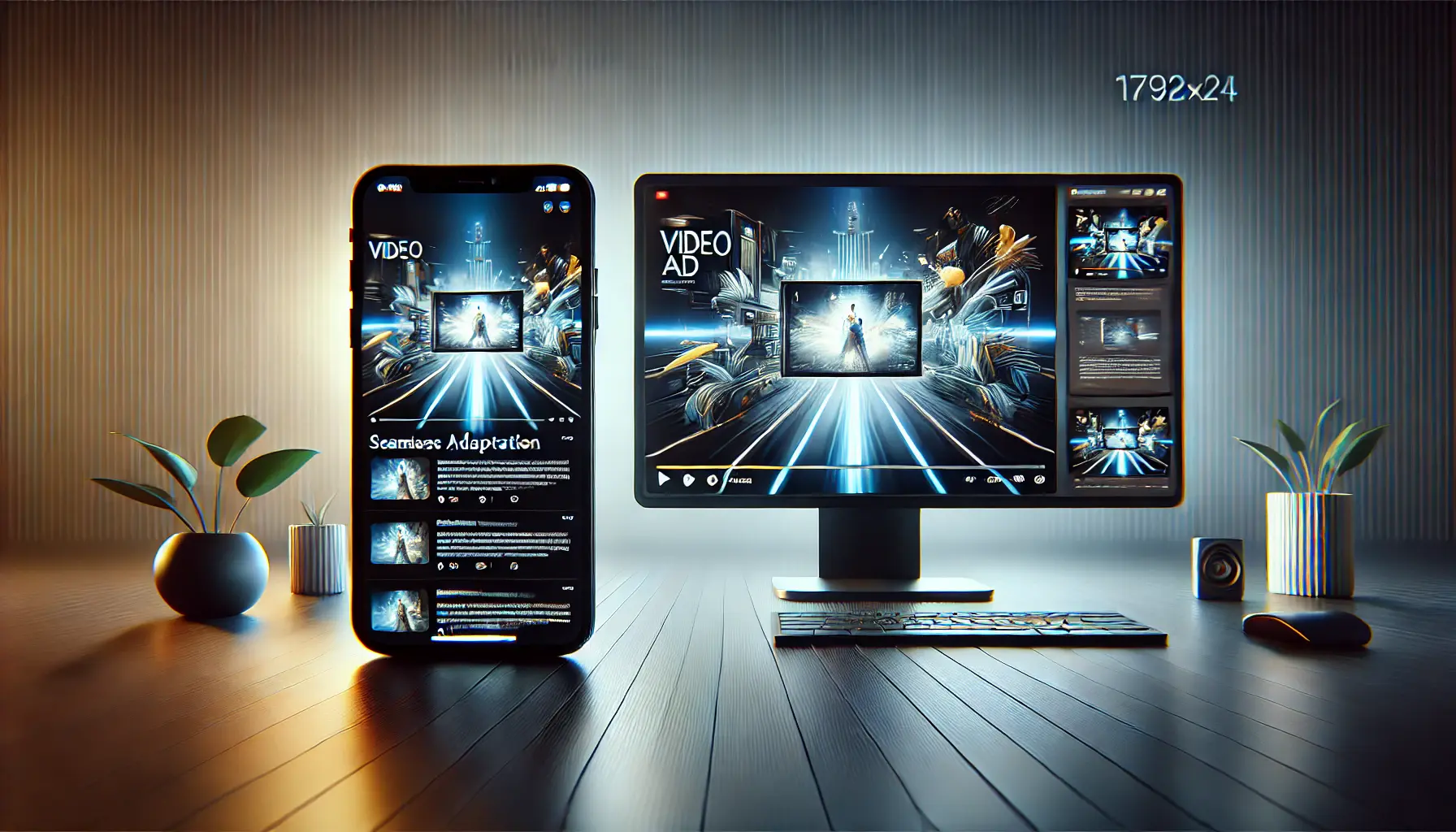
Seamless adaptation of video ads for both mobile and desktop devices.
Adapting to Mobile and Desktop Viewing Preferences
Understanding the distinct preferences of mobile and desktop users is the first step.
Mobile viewers often seek quick, engaging content, while desktop users might be more receptive to longer, detailed ads.
By aligning your ad content with these preferences, you can significantly boost user engagement.

Dynamic adaptation of video player interfaces across multiple devices.
Implementing Responsive Video Designs
Responsive design isn’t just for websites.
Ensuring your video ads automatically adjust to various screen sizes enhances the user experience.
This adaptability prevents issues like improper cropping or black bars, maintaining the visual appeal of your ads across all devices.

Side-by-side display of vertical and horizontal video formats for diverse devices.
Utilizing Vertical and Horizontal Video Formats
Have you noticed the rise of vertical videos, especially on mobile platforms?
Incorporating both vertical and horizontal formats into your ad strategy ensures your content looks natural and engaging, regardless of how it’s viewed.
This approach caters to user habits and platform specifications.
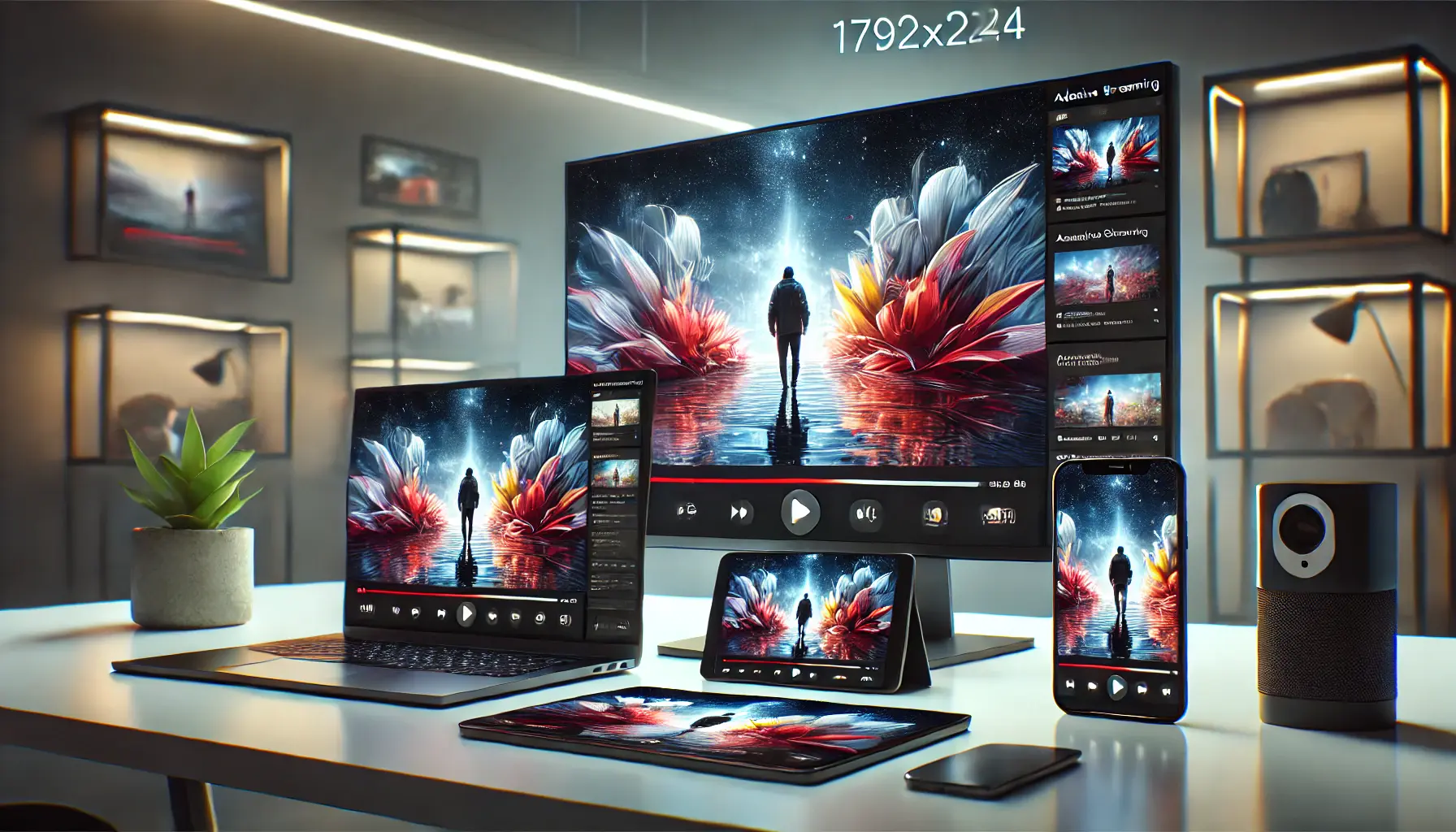
Seamless high-quality video playback across multiple devices.
Ensuring High-Quality Playback Across Devices
Quality matters.
By utilizing adaptive bitrate streamingA technology that adjusts video quality based on the viewer's internet connection speed., your video ads will play seamlessly, adjusting to the viewer’s network conditions.
That means minimal buffering and a top-notch quality that keeps viewers engaged and less likely to skip your ad.
By focusing on these strategies, you’re not just building ads; you’re creating experiences for your audience, regardless of how they view your content.
And remember: positive user experiences with your ad can increase brand perception and conversion rates.
Tailor your video ads to provide a seamless experience across all devices, ensuring better engagement and reach.
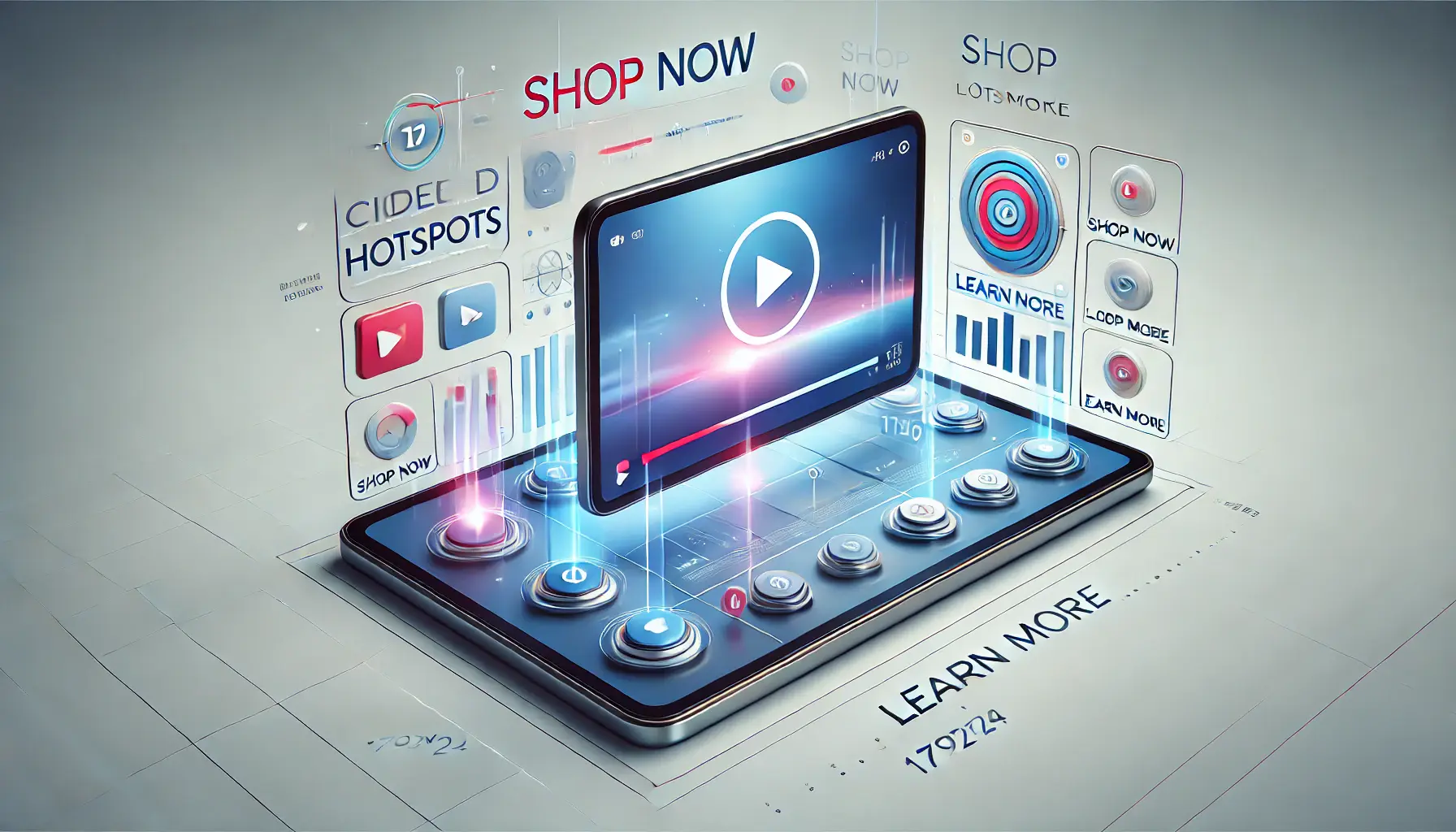
Interactive video ad with clickable hotspots to enhance engagement.
Integrating Interactive Elements to Boost Engagement
Incorporating interactive elements into your YouTube ads can significantly enhance the user experience, making your content more engaging and memorable.
By encouraging active participation, you not only capture attention but also foster a deeper connection with your audience.

Video ad with prominent clickable calls-to-action buttons.
Incorporating Clickable Calls-to-Action (CTAs)
Clickable CTAs are important to guide viewers to the next step, whether it’s visiting your website or making a purchase.
With clear and compelling CTAs within your video ads, you can seamlessly take your audience further along their journey, enhancing the overall user experience.
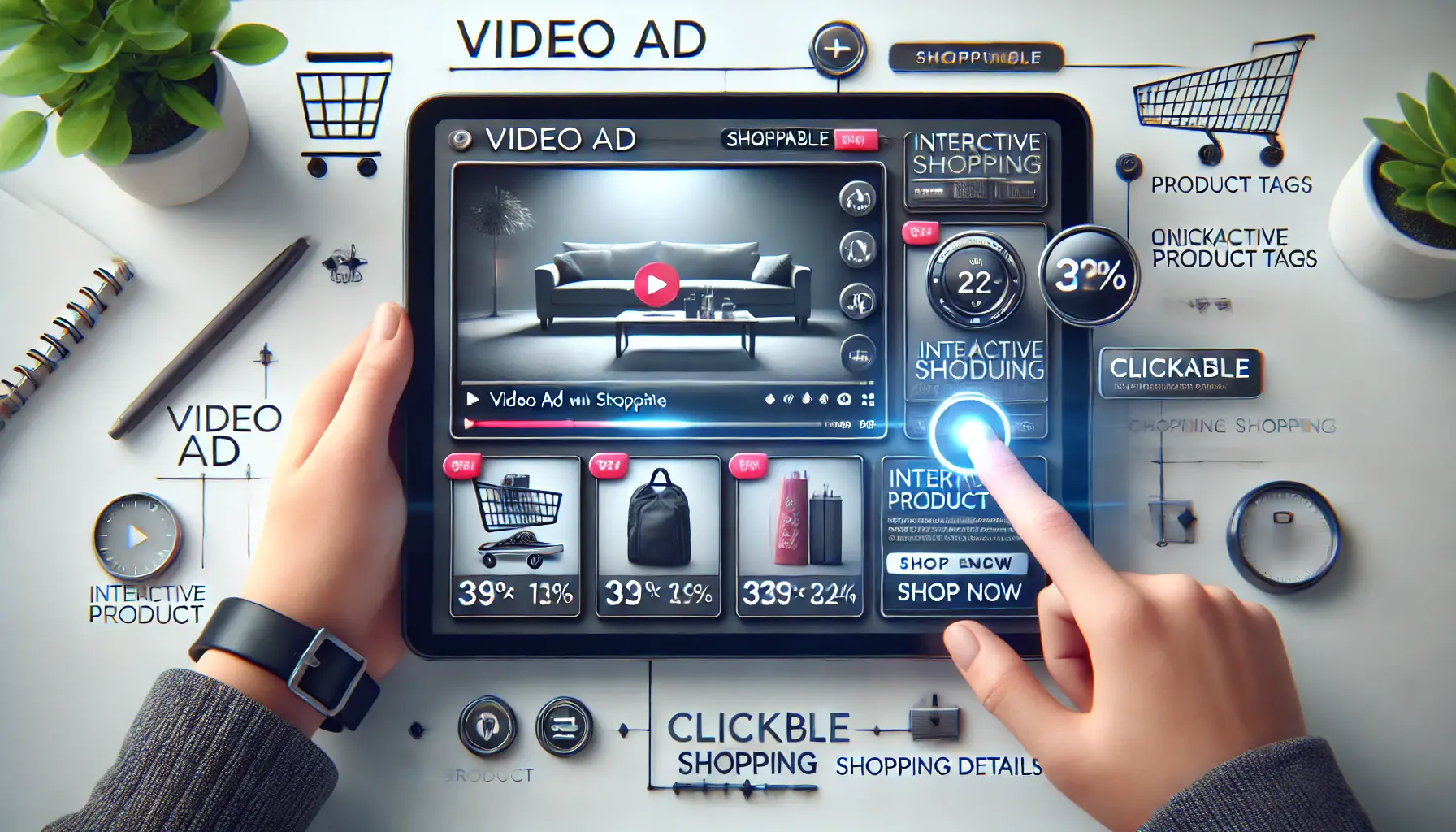
Shoppable video ad with interactive product tags and hotspots.
How to Leverage Shoppable Video Features
Shoppable videos transform passive viewing into active shopping experiences.
By embedding clickable hotspots or links within your ad, viewers can explore product details and make purchases without leaving the video.
This seamless integration not only boosts user engagement but can also significantly enhance conversion rates.

Interactive video ad with polls and survey options to engage users.
Utilizing Polls and Surveys Within Ads
Interactive polls and surveys engage viewers by prompting them to share their opinions or preferences.
This interaction not only makes the ad experience more engaging but also provides valuable insights into your audience’s interests and behaviors, helping you create more targeted and effective campaigns.
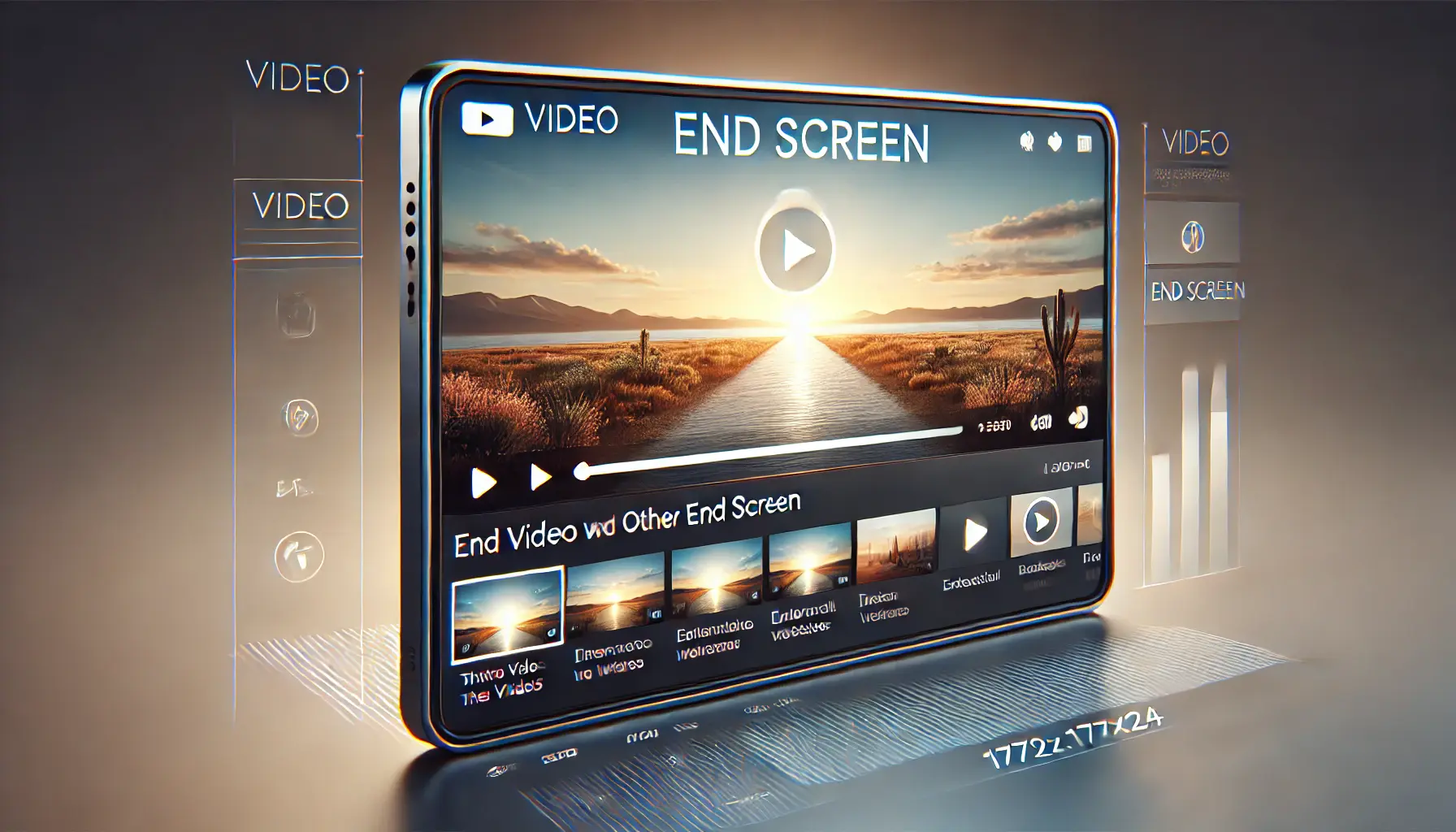
Interactive video end screen designed to enhance viewer engagement.
Enhancing Viewer Interaction with End Screens
End screens appear in the last 5–20 seconds of your video and can link to other videos, playlists, or external websites.
This keeps viewers continuously engaged with your content even after the initial ad has ended, promoting further interaction with your brand.
By integrating these interactive elements into your YouTube ads, you add dynamism and create a more engaging user experience.
Beyond capturing attention, these strategies encourage viewers to actively engage with your brand, resulting in higher conversion rates and stronger connections.
Interactive elements like clickable CTAs and shoppable videosVideos that include clickable elements for viewers to explore and purchase products directly. make your ads more engaging and memorable, driving higher conversions.

AI technology enhancing personalized ad experiences through real-time data analysis.
Leveraging AI for Personalized Ad Experiences
In today’s digital era, harnessing artificial intelligence (AI) is essential for creating personalized ad experiences that resonate with individual users.
By analyzing vast amounts of data, AI enables marketers to deliver tailored content, enhancing the overall user experience and driving higher engagement.

AI technology used for real-time audience targeting and segmentation.
Utilizing AI for Audience Targeting
AI-powered tools can analyze user behavior, preferences, and demographics to identify and segment audiences more precisely.
This allows for the creation of highly targeted ad campaigns that speak directly to the interests and needs of specific user groups, improving relevance and effectiveness.

undefined
Implementing AI-Driven Content Personalization
By leveraging AI algorithms, marketers can dynamically adjust ad content to align with individual user preferences.
This real-time personalization ensures that users receive content that is most relevant to them, enhancing their engagement and satisfaction.

Machine learning algorithms optimizing the timing of ad delivery based on user data.
Optimizing Ad Delivery Times with Machine Learning
Machine learning models can predict the best times to deliver ads to each user based on their activity patterns.
By scheduling ad delivery at times when users are most likely to be receptive, marketers can increase the likelihood of engagement and conversion.

AI optimizing ad creatives by analyzing and adjusting design elements.
Enhancing Ad Creatives Using AI Insights
AI can analyze the performance of various ad creatives to determine which elements resonate most with different audience segments.
This insight allows for the optimization of visuals, messaging, and formats to create more compelling ads that enhance the user experience.
By integrating AI into your advertising strategy, you will be able to create more personalized and engaging ad experiences that captivate and connect with your audience on a deeper level, driving better campaign performance and higher conversion rates.
AI enables precise audience targeting and personalized ad experiences, improving relevance and user satisfaction.

AI-powered audience targeting for more relevant ad delivery.
Enhancing Ad Relevance Through Advanced Targeting
Delivering a personalized user experience in your YouTube ads is crucial for capturing attention and driving engagement.
Advanced targeting techniques enable you to reach the right audience with content that resonates, thereby enhancing the effectiveness of your campaigns.

undefined
Employing Demographic and Psychographic Data
Understanding your audience’s demographics—such as age, gender, and location—allows you to tailor your ads to their specific characteristics.
Incorporating psychographic dataInformation about users' interests, values, lifestyles, and attitudes., which includes interests, lifestyles, and values, further refines your targeting strategy, ensuring your content aligns with the audience’s preferences.

undefined
Utilizing Behavioral Targeting Techniques
Behavioral targeting involves analyzing users’ online behaviors, such as their browsing history and past interactions, to predict future actions.
By leveraging this data, you can serve ads that align with users’ interests and behaviors, providing a more relevant user experience.
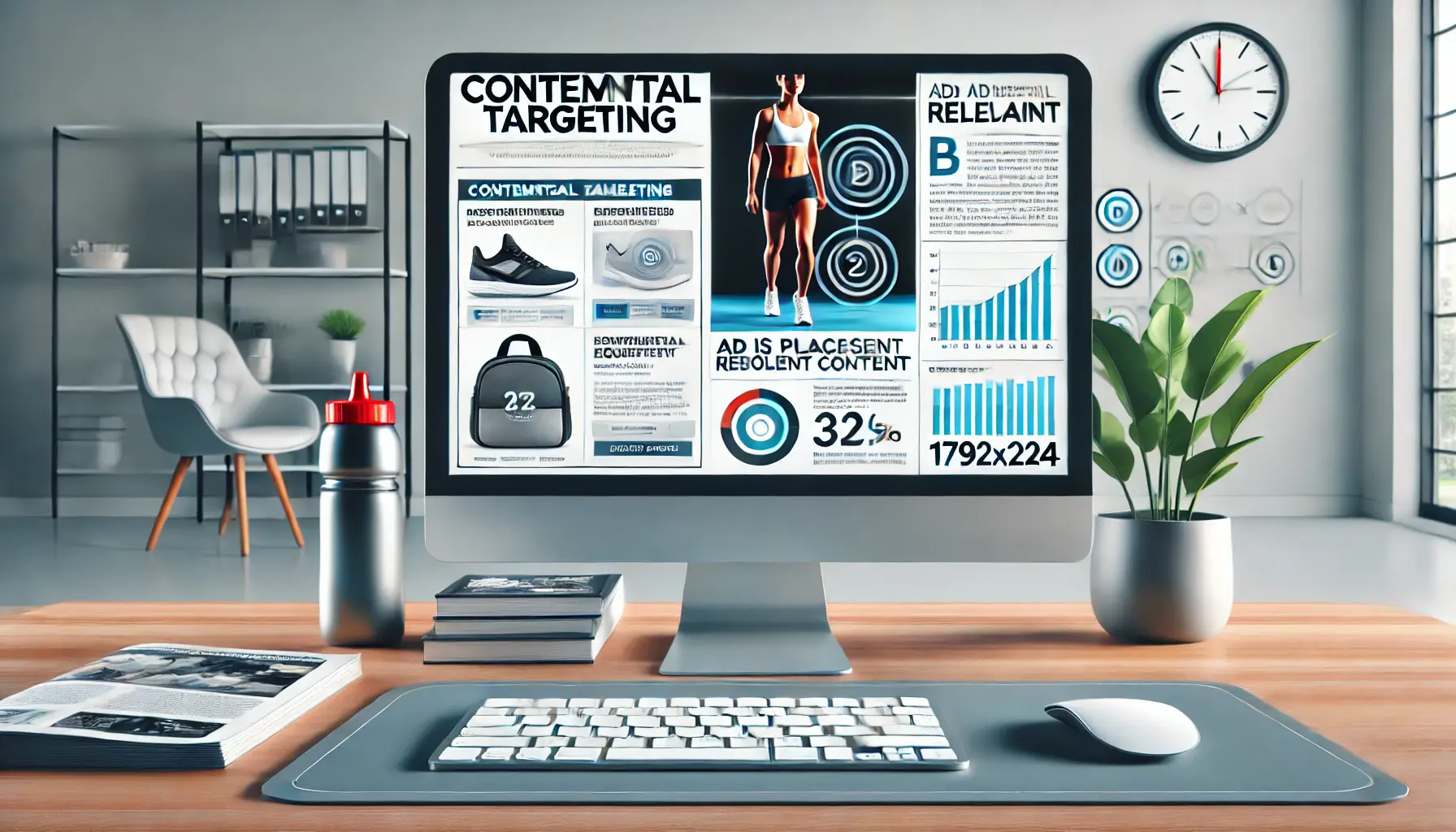
Contextual targeting in advertising, where ads are placed alongside relevant content.
Implementing Contextual Targeting Strategies
Contextual targeting places your ads alongside content that is relevant to your message.
By analyzing the context of the videos or channels where your ads appear, you ensure that your content complements the surrounding material, enhancing relevance and engagement.

Retargeting ads to re-engage users who have previously interacted with the product.
Applying Retargeting to Re-Engage Viewers
Retargeting allows you to reach users who have previously engaged with your brand but did not convert.
By serving tailored ads to these individuals, you remind them of your offerings and encourage them to take the desired action, thereby improving conversion rates.
By integrating all these advanced targeting strategies, you are sure to present a more personalized and interactive user experience through your YouTube ads, which eventually results in higher user engagement and better campaign performance.
Advanced targeting techniques like demographic and behavioral data ensure your ads reach the right audience effectively.
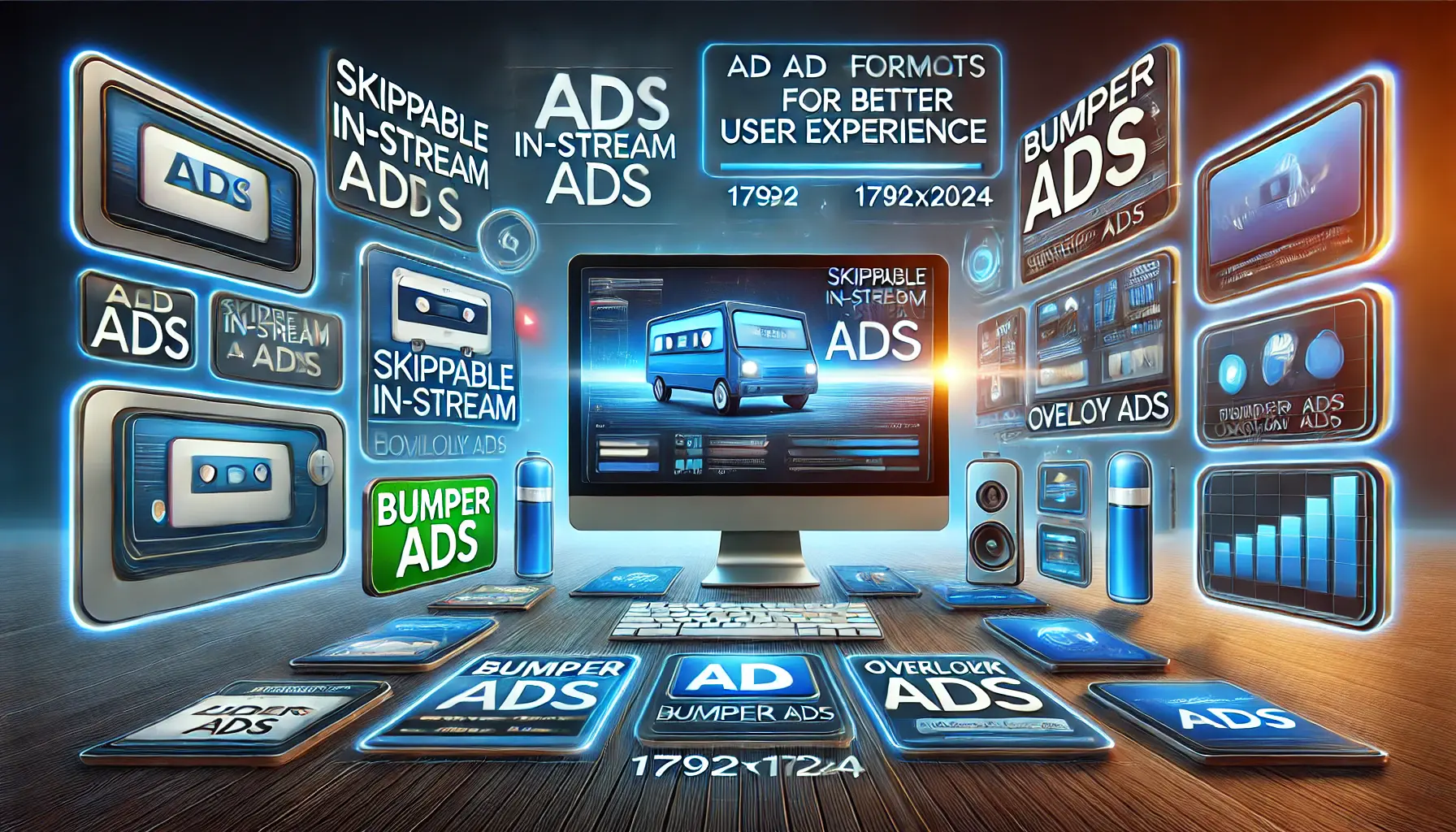
Different ad formats designed to enhance user experience and engagement.
Enhancing Ad Formats for Better User Experience
Choosing the appropriate ad formats is crucial for delivering a positive user experience on YouTube.
Selecting formats that align with your audience’s preferences can significantly boost engagement and satisfaction.
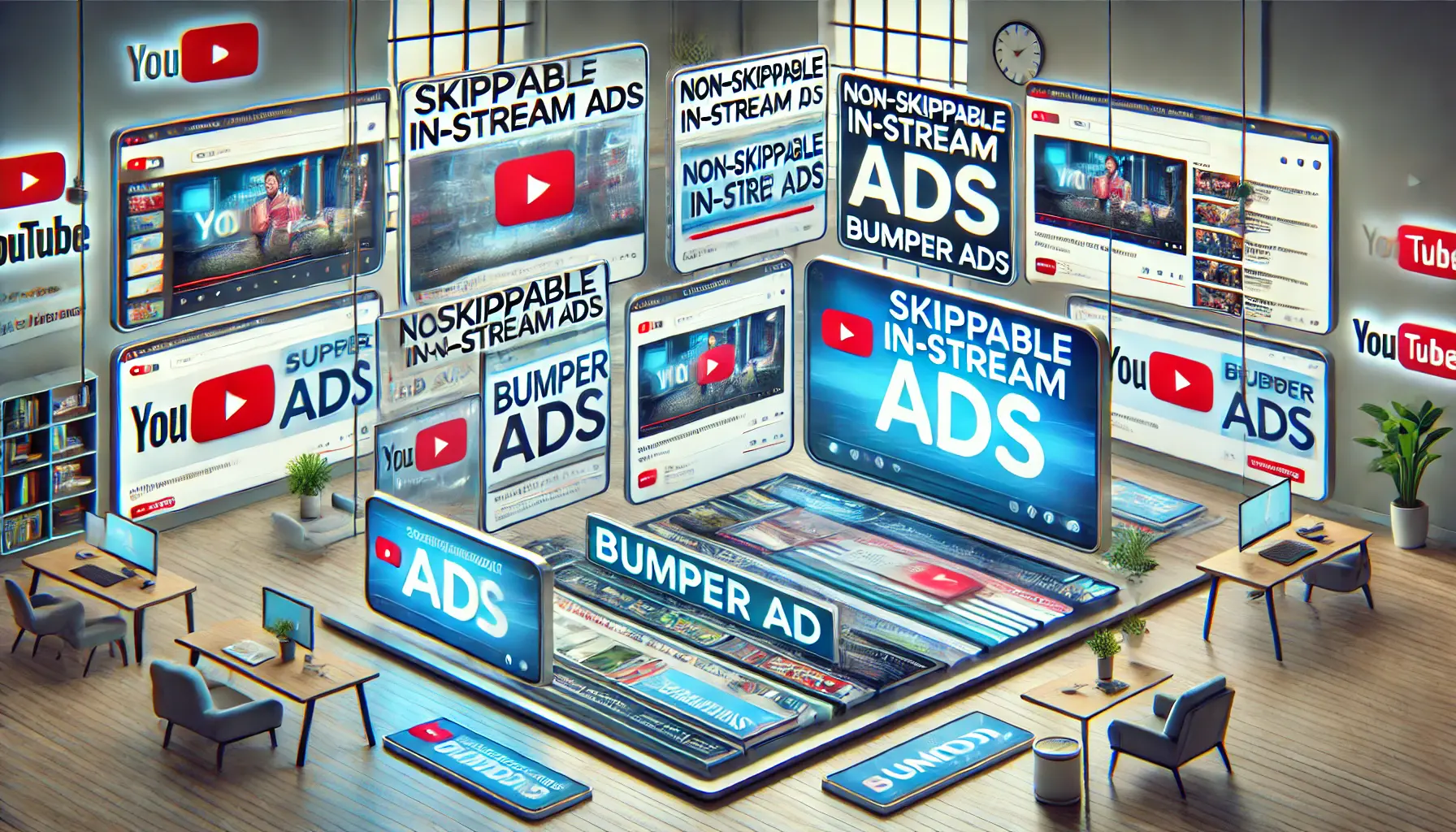
undefined
Exploring Various YouTube Ad Formats
YouTube offers a variety of ad formats, each catering to different objectives and audience behaviors:
- Skippable In-Stream Ads: These ads run before or during the video and can be skipped after 5 seconds. Because they are less intrusive, they give the audience room for flexibility.
- Non-Skippable In-Stream Ads: These ads must be watched before the main video content. Although they guarantee full message delivery, they need to be interesting to keep the viewer engaged.
- Bumper Ads: Short, non-skippable ads lasting up to 6 seconds, ideal for delivering concise messages and reinforcing brand awareness.
- Overlay Ads: Semi-transparent ads that appear on the lower portion of the video, offering a less intrusive advertising option.
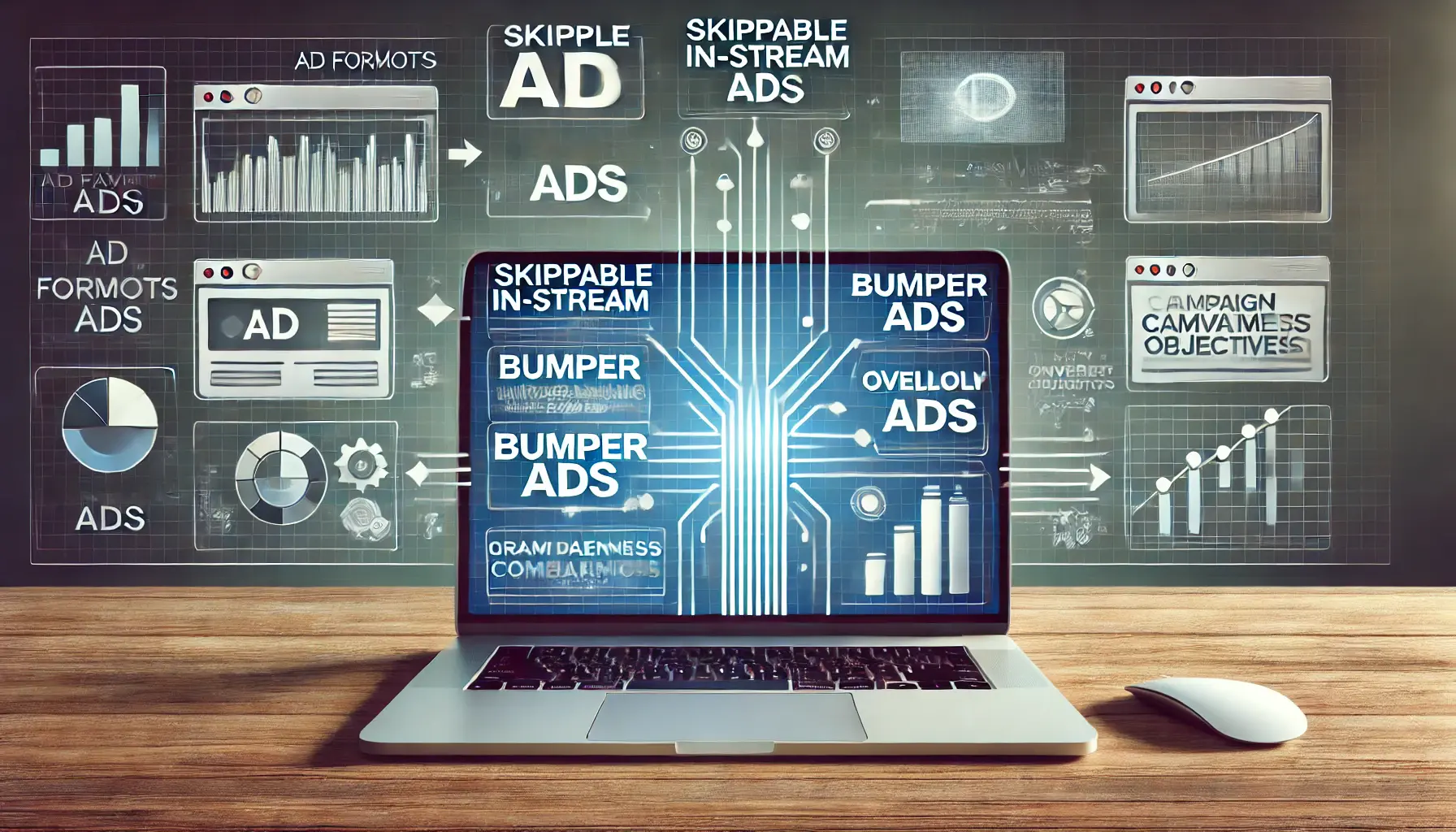
Ad formats aligned with campaign objectives for better targeting and results.
Aligning Ad Formats with Campaign Objectives
It’s essential to match ad formats with your specific campaign goals:
- Brand Awareness: Bumper ads and non-skippable in-stream ads will ensure your message reaches a wide audience, even if the viewer cannot skip the ad.
- Engagement: Skippable in-stream ads ensure voluntary viewing, leading to higher engagement rates.
- Conversions: Overlay ads and skippable in-stream ads with prominent calls-to-action can help drive traffic to a website or product pages.
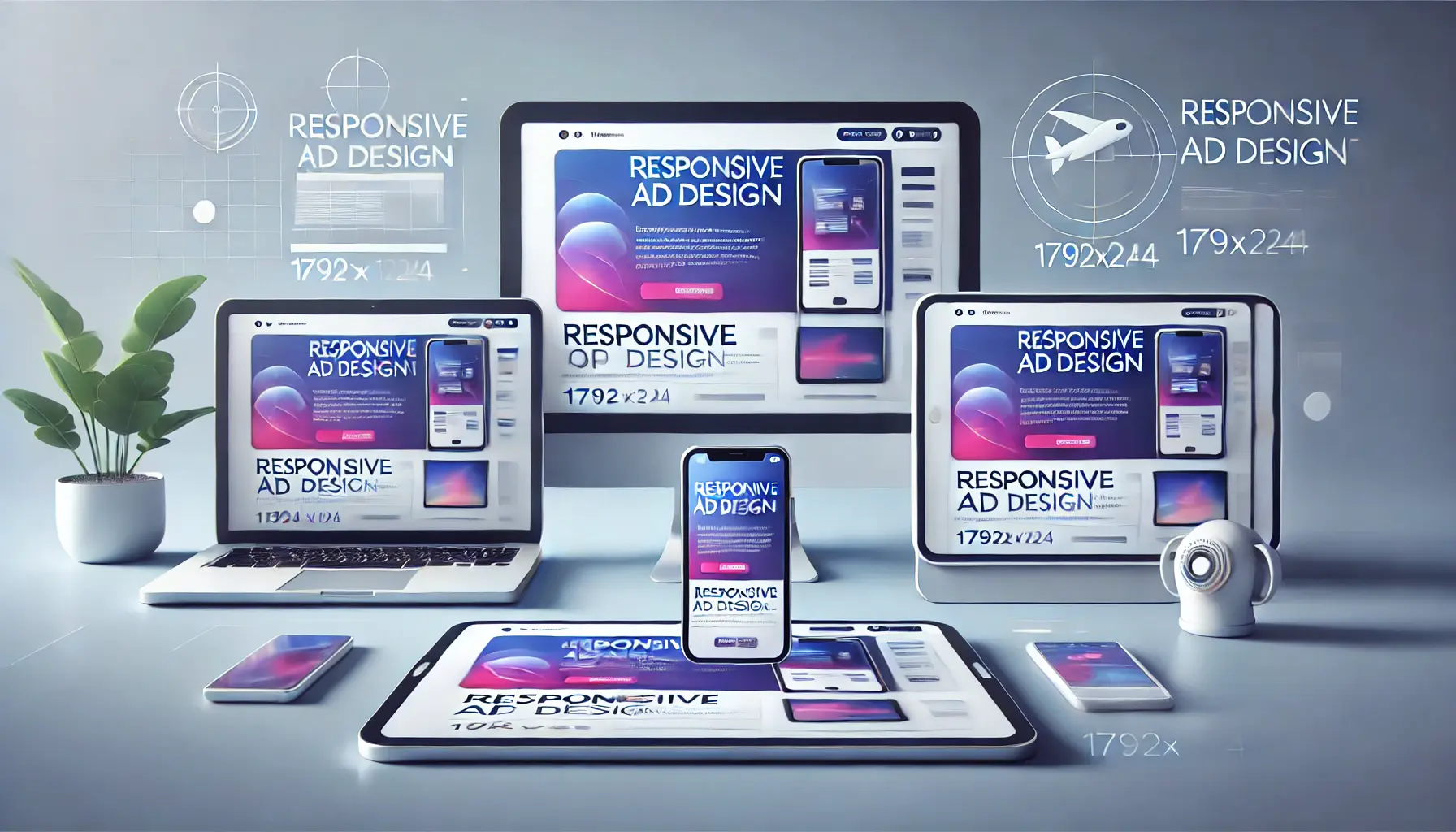
Responsive ad designs adjusting seamlessly across devices.
Responsive Ad Designs in Action
Ensuring your ads are optimized for various devices enhances the user experience:
- Mobile Optimization: With the rise of mobile viewers, create visually and functionally captivating ads for smaller screens.
- Adaptive Resolutions: Use high-quality visuals that adapt seamlessly across all screen sizes and resolutions.
By thoughtfully choosing and designing ad formats aligned with your campaign objectives, you can improve the user experience on YouTube, leading to more engagement and better overall campaign performance.
Choosing ad formats like skippable or bumper ads based on your objectives significantly enhances user experience and engagement.
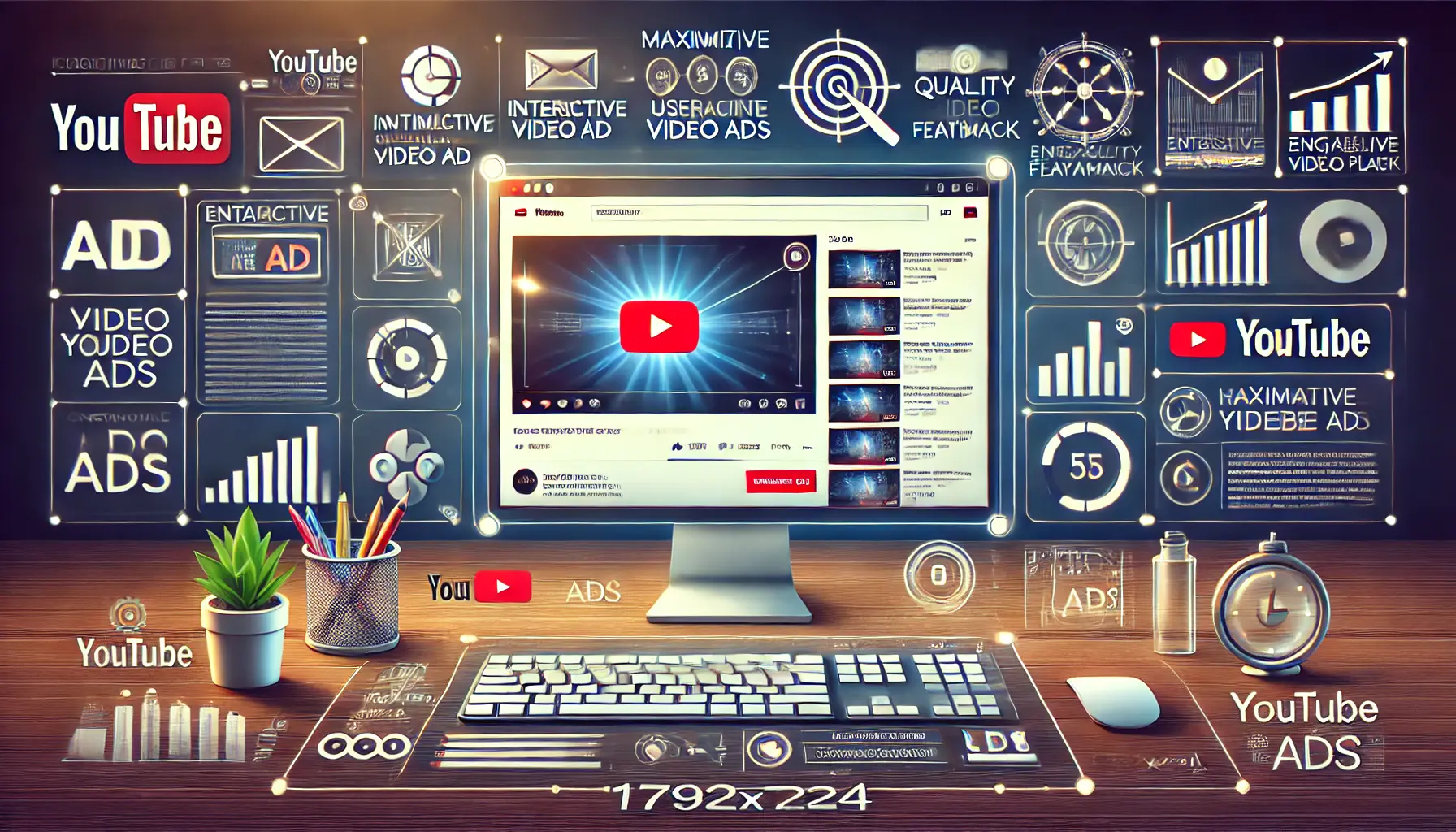
undefined
Maximizing User Experience in YouTube Ads: Key Takeaways
Creating a successful YouTube ad campaign revolves around delivering an exceptional user experience.
From optimizing video content to leveraging advanced targeting, every element plays a crucial role in capturing and retaining audience attention.
Let’s summarize the critical insights explored in this article.
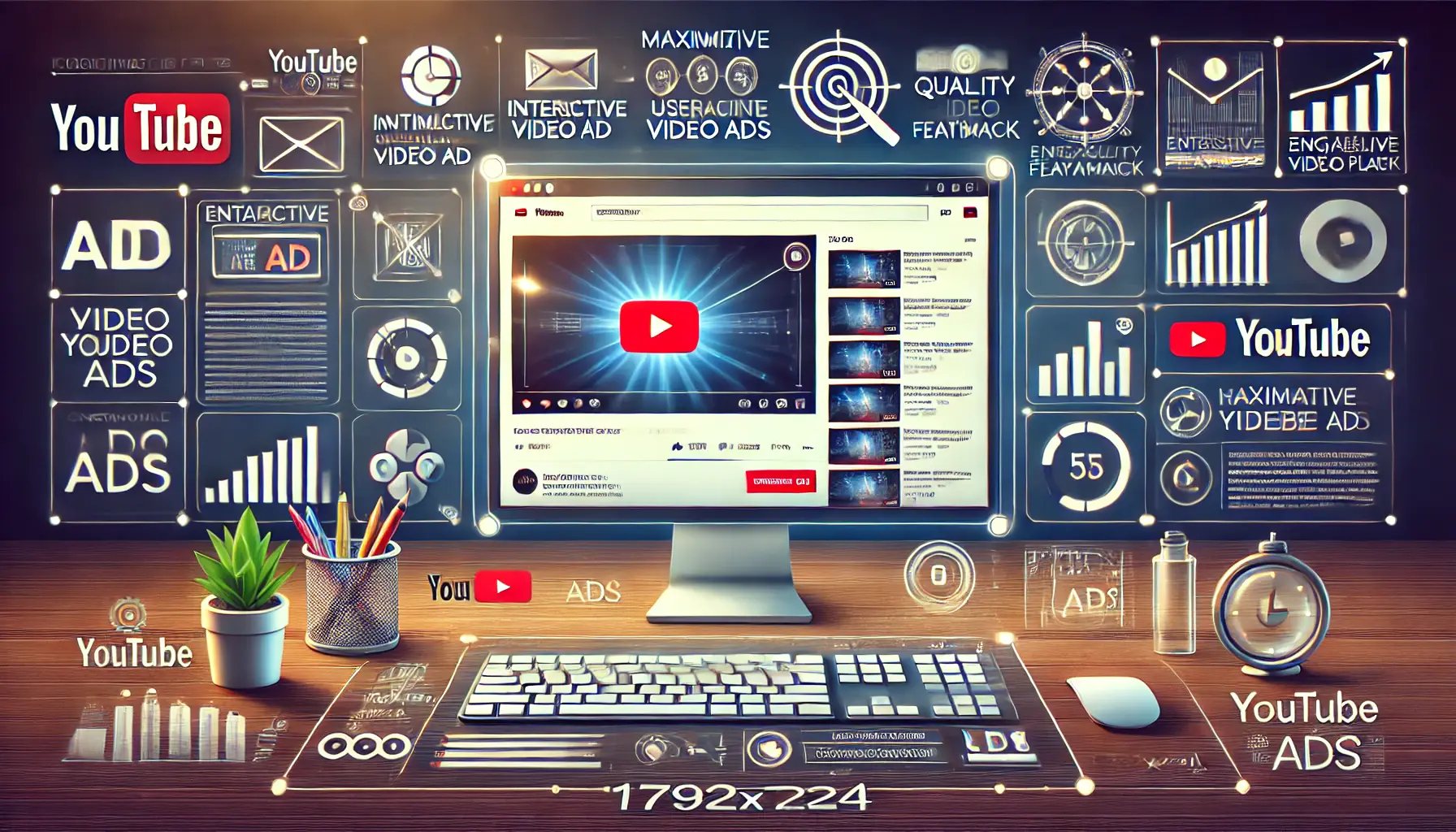
undefined
1. Tailor Content for Diverse Viewing Formats
Ensuring your video ads are responsive and optimized for mobile, desktop, and other devices enhances accessibility and visual appeal.
Using both vertical and horizontal formats along with adaptive streaming technologies guarantees high-quality playback for every viewer.
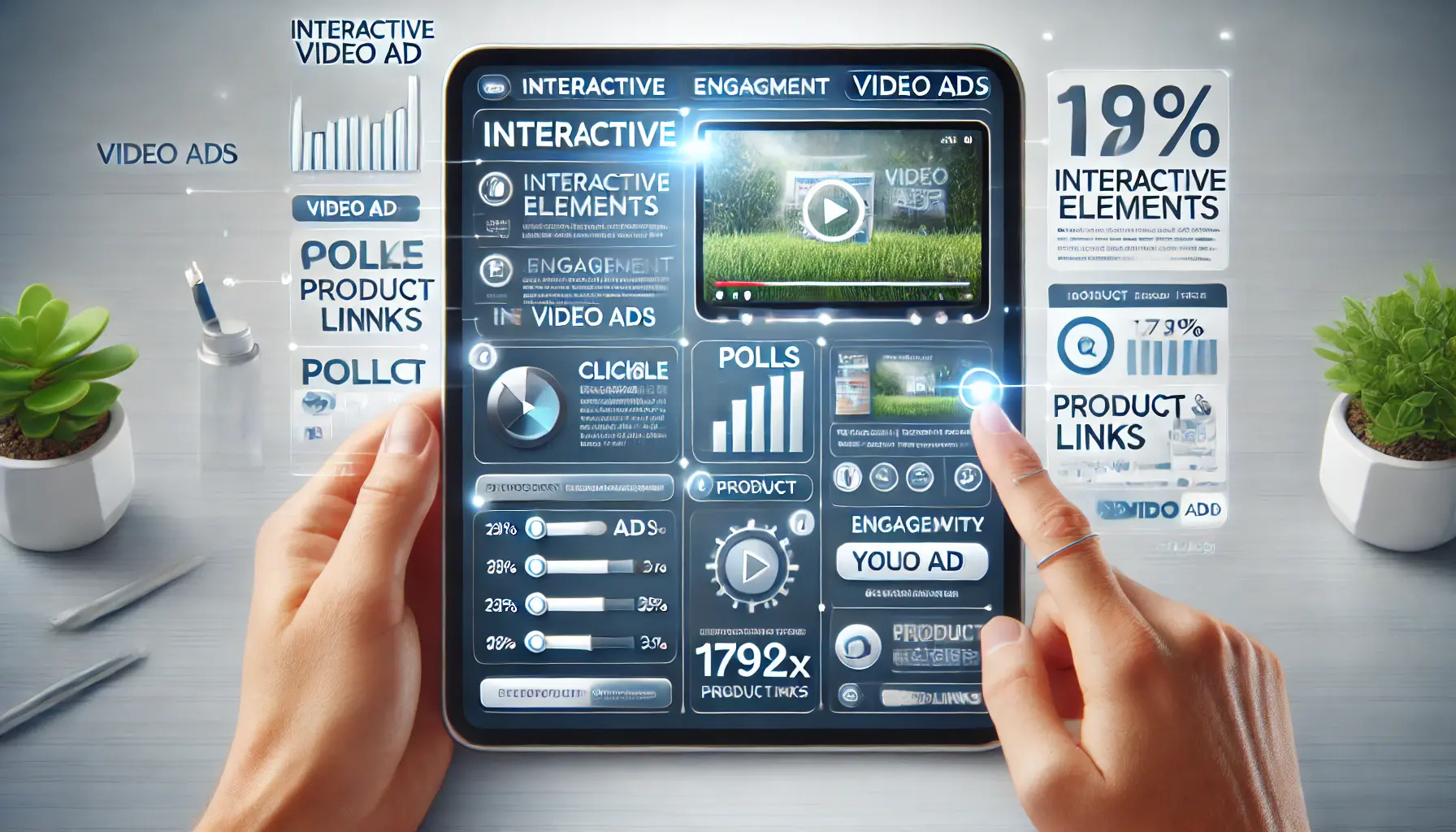
undefined
2. Boost Engagement with Interactive Elements
Interactive features such as clickable CTAs, shoppable videos, polls, and surveys delight viewers and encourage active participation with your brand.
Each of these strategies not only connects them more deeply but also provides valuable audience insights.
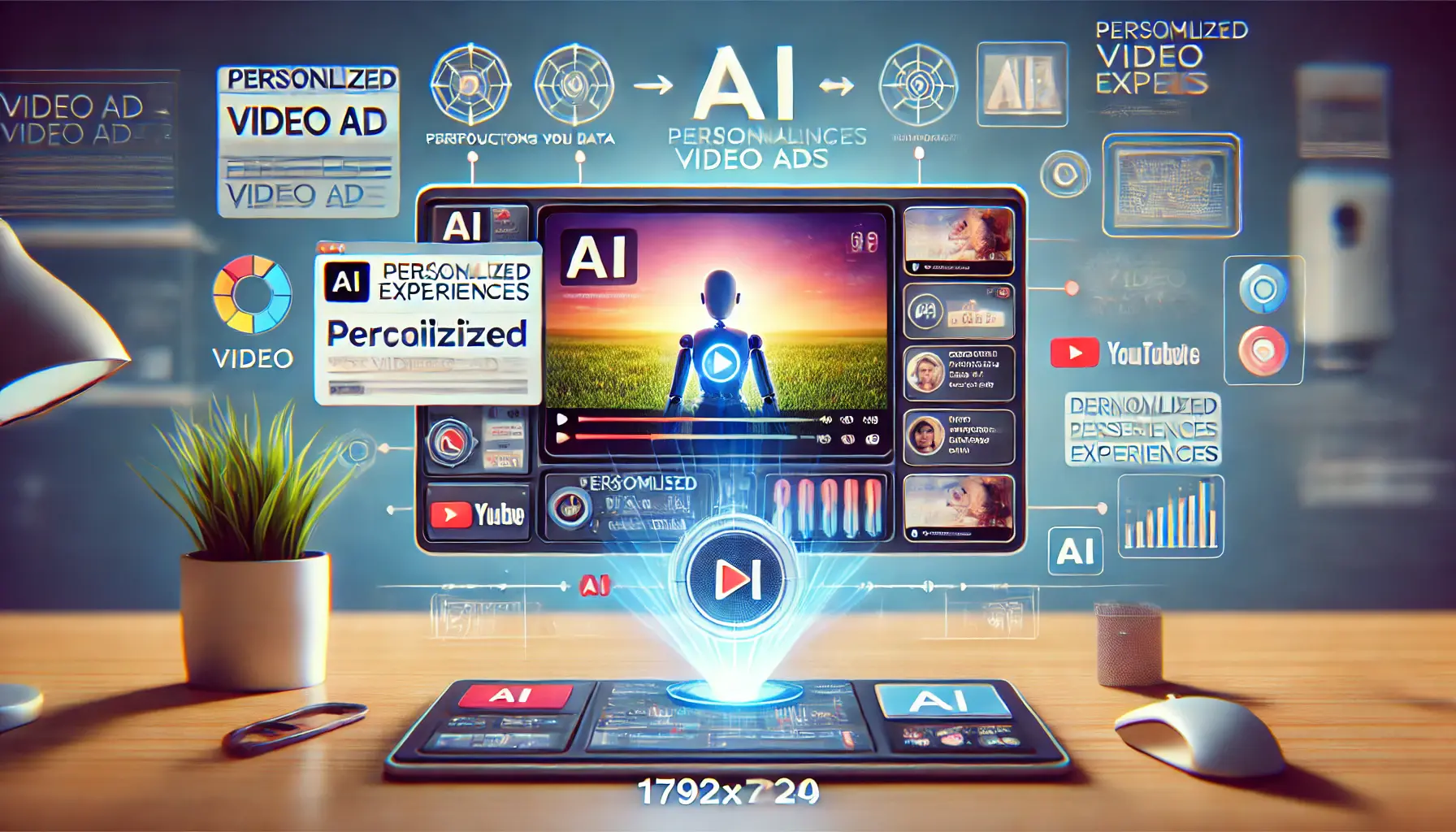
AI-powered personalized video ads tailored to user interests.
3. Leverage AI for Personalized Experiences
AI-driven solutions offer the ability to tailor ad content in real time, target audiences effectively, and optimize ad delivery schedules.
These tools ensure relevance, improve engagement, and maximize the overall impact of your campaigns.

Advanced audience segmentation and targeting for enhanced ad relevance.
4. Enhance Relevance with Advanced Targeting
Using demographic, psychographic, and behavioral data allows for precise audience segmentation.
Strategies like contextual targeting and retargetingA marketing strategy to serve ads to users who previously interacted with your brand. ensure your ads are seen by the right users at the right time, boosting conversion rates and user satisfaction.
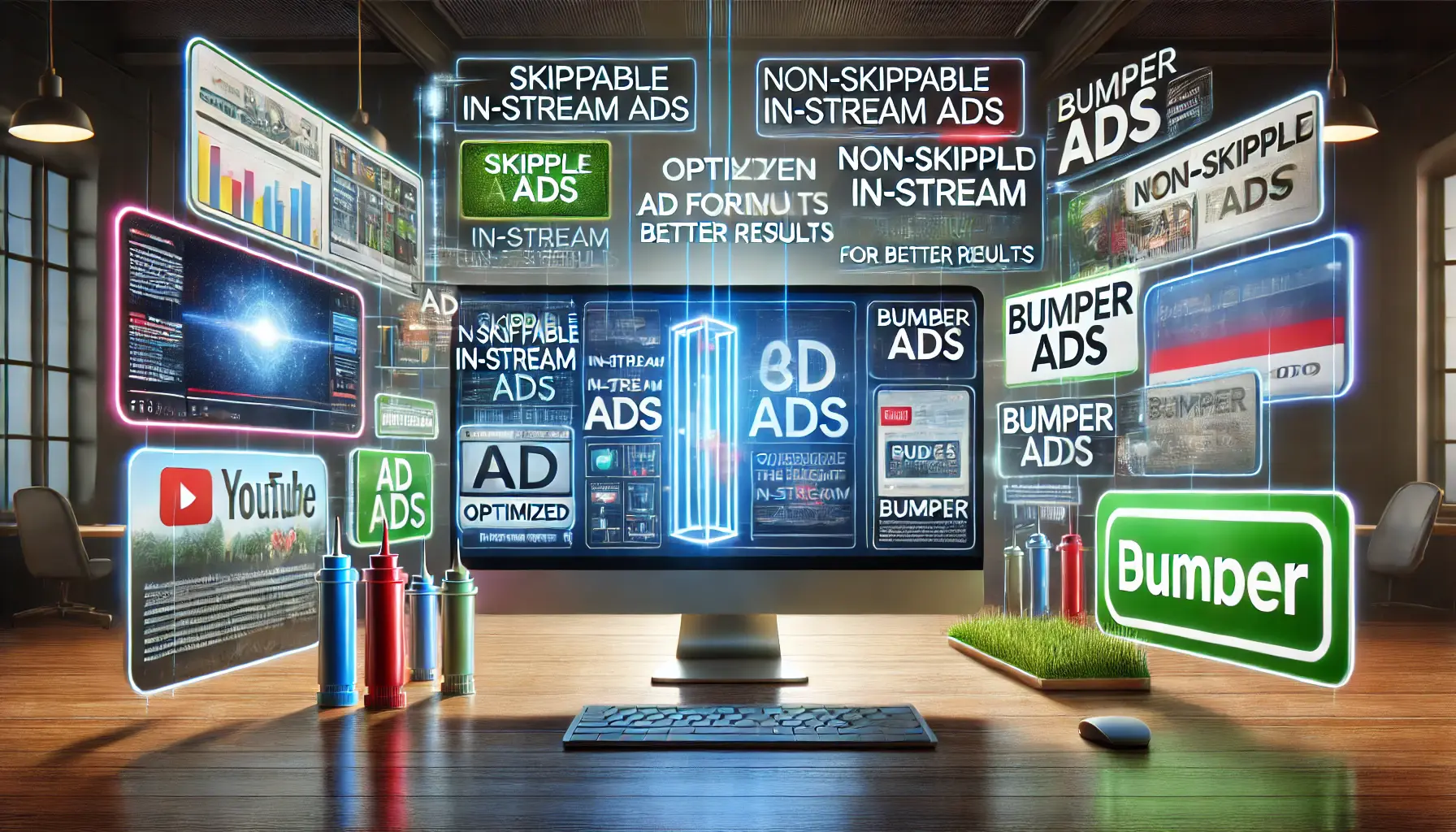
Optimizing ad formats for improved campaign performance.
5. Optimize Ad Formats for Better Results
Choosing the right ad formats based on campaign objectives is essential.
From skippable and non-skippable ads to bumper and overlay ads, selecting formats that align with your goals and audience preferences drives better engagement and outcomes.

A reflective workspace symbolizing the conclusion of the discussion.
Final Thoughts
Integrating these practices into your YouTube ad campaigns will help you provide a seamless and interactive user experience.
By focusing on personalization, relevance, and interactivity, you can build stronger connections with your audience and achieve your advertising goals effectively.
Keep in mind that it’s not just about boosting engagement—a good user experience develops brand loyalty and trust in the long run.
Apply these practices starting today to take your YouTube ads to the next level.
Summarize key practices to deliver exceptional user experiences in YouTube ads, from responsive design to advanced targeting.
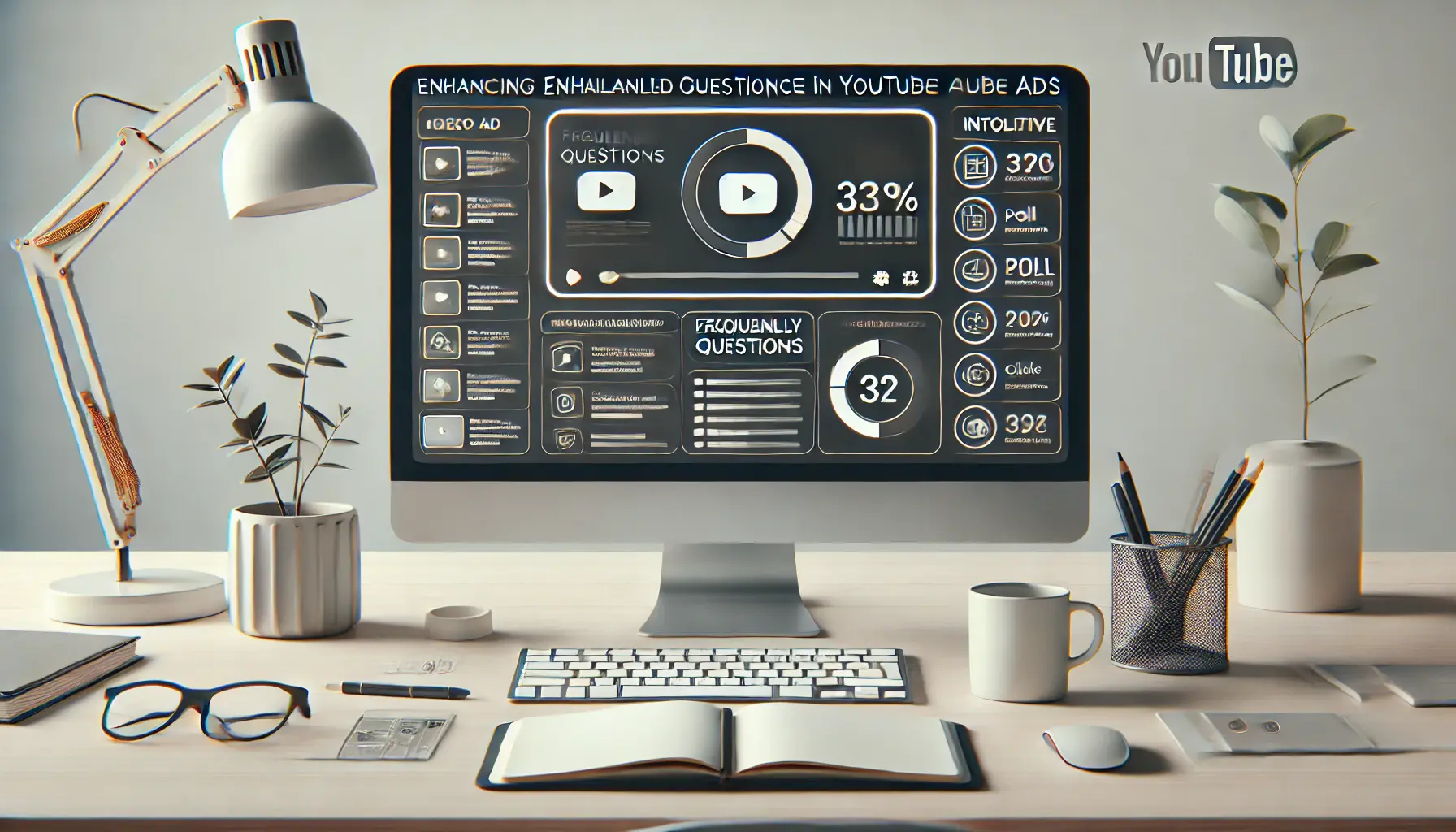
A workspace with a YouTube ad interface displaying interactive elements, symbolizing frequently asked questions about enhancing user experience in ads.
Your campaigns can be managed by an agency specialized in Google Ads, check out our service page.
Frequently Asked Questions on Enhancing User Experience in YouTube Ads
Enhancing the user experience in YouTube ads is essential for effective digital marketing.
Below are some common questions and concise answers to guide you in optimizing your ad strategies.
Incorporate interactive elements like clickable calls-to-action, polls, and shoppable features to encourage viewer interaction and boost engagement.
AI analyzes user data to deliver personalized ad content, improving relevance and enhancing the overall user experience.
Utilize advanced targeting techniques, including demographic, psychographic, and behavioral data, to reach the most appropriate audience.
Choose ad formats that align with your campaign objectives and audience preferences, such as skippable in-stream ads for engagement or bumper ads for brand awareness.
Responsive ad designs ensure that your ads display correctly across various devices, providing a seamless viewing experience for all users.
Shoppable videos allow viewers to make purchases directly from the ad, streamlining the buying process and enhancing user convenience.
Monitor key performance indicators such as view rates, click-through rates, and conversion rates to assess ad performance and user engagement.
Implement frequency cappingA technique that limits the number of times an ad is shown to a single user. to limit the number of times an ad is shown to the same user, preventing overexposure and maintaining viewer interest.
With a significant portion of users accessing YouTube via mobile devices, optimizing ads for mobile ensures a better user experience and higher engagement rates.


